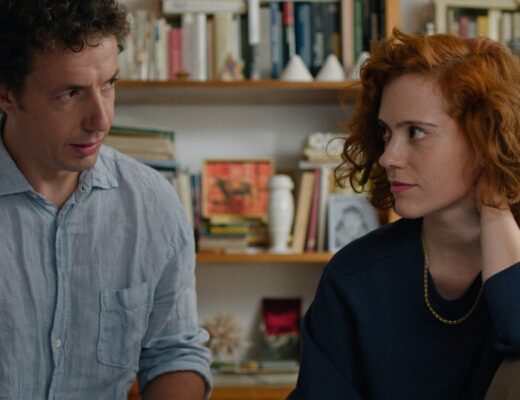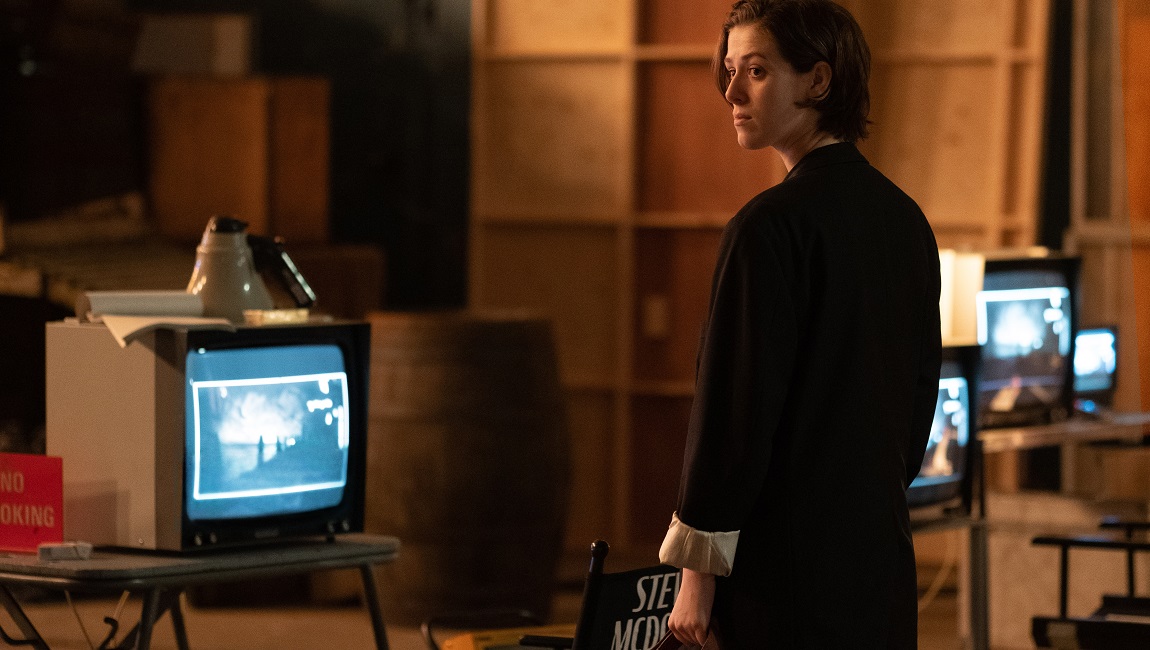Is Nacho Vigalondo prescient, or is he simply savvy enough to have tapped into our cultural obsessions with the lifestyles of the rich and famous? His third feature, Open Windows, may be two months past the “best by” date of August’s Celebgate scandal — in which a rash of phone hacks leaked nude photos of celebrities ranging from Kate Upton to Jennifer Lawrence across the Internet — but the film feels no less timely despite its late arrival. Maybe that’s because we’ve always been caught up in the comings and goings of our big-screen gods, or maybe Celebgate has struck such a major chord in our more-gender-conscious social climate that it continues to resonate with us now, even in an ADD-addled society where all news is old news within minutes of breaking. Either way, Open Windows manages to capture a moment in time where the private lives of celebrities are under greater public scrutiny than ever before. Thus, Vigalondo’s show of foresight makes him seem like a camera-wielding seer. Open Windows is a voyeuristic tome of ill-intentioned hacking and entitled fanboy transgression; it’s a film that’s designed as a critique of our fascinations with celebrities and their daily existences. We love our idols, but when we find ourselves with sudden unfettered access to these people, what do we do with it? How do we honor or abuse that contact? This is the quandary facing Nick (Elijah Wood), proprietor of a website dedicated to the worship of scream queen Jill Goddard (Sasha Grey), who is often teetering on the edge of personal and professional meltdowns. Nick has won a contest to have dinner with Jill, and he’s jetted off to Austin, Texas, to claim his prize. But once settled into his hotel room, Jill’s campaign manager, Chord (Neil Maskell), informs Nick that she’s canceled the dinner. It’s a bummer development for Nick, but Chord gives him a consolation treat: an uplink to Jill’s computer and cell phone that gives Nick the chance to peer into her life. Sounds like a creepy admirer’s dream come true…until Chord reveals his own sinister ulterior motives.
As Vigalondo’s script spirals further into the worst depths of human depravity, so too does it slowly swallow its own tail.
For its first hour, Open Windows is brisk and gripping, a marvel of pacing as Nick’s evening with Jill goes from weird to perverse to horrific. Here, the plot has teeth and momentum. You may even get the sense that you’re watching a hi-tech Alfred Hitchcock movie with stakes that escalate in perfect time with its menace. Nick is a victim in Chord’s game just like Jill, though thankfully the film never loses sight of the theft of her agency. Even with Nick’s moral qualms, she’s constantly at the whims of male observers, and her panic combined with Nick’s unwilling complicity gives the film bite. But as Vigalondo’s script spirals further into the worst depths of human depravity, so too does it slowly swallow its own tail. Eventually, Open Windows becomes a needlessly complicated mess of twists, turns, gotcha beats, and plot reveals. It’s absurdly overwrought and undermines everything about the film that works. The film starts off so well that the stress its second half puts on our suspension of disbelief feels like an extra kick in the teeth. If Vigalondo meant to take an otherwise compelling story in a direction this over the top, couldn’t he have spared his viewers the disappointment and simply made a bad movie to begin with? Throughout Open Windows, Vigalondo employs a clever visual conceit, telling his tale through pop-ups on computer screens and through cellphone videos. This may be the film’s niftiest invention, a technique that replicates the rush and immediacy of the Information Age without sacrificing narrative clarity. Characters in totally different locations remain connected through technology, which heightens rather than defuses tension; even as Nick realizes the danger Jill is in, he’s so far removed from her that he’s as helpless as she is to stop it. Vigalondo’s dedication to his conceit is admirable — which makes it even more of a shame that he fritters away the film’s initial promise for the sake of increasingly, emptily outrageous provocation.








No Comments